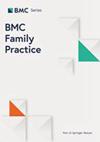The short and long-term efficacy of nurse-led interventions for improving blood pressure control in people with hypertension in primary care settings: a systematic review and meta-analysis
IF 3.2
3区 医学
Q1 MEDICINE, GENERAL & INTERNAL
引用次数: 0
Abstract
Previous systematic reviews suggest that nurse-led interventions improve short-term blood pressure (BP) control for people with hypertension. However, the long-term effects, adverse events, and appropriate target BP level are unclear. This study aimed to evaluate the long-term efficacy and safety of nurse-led interventions. We conducted a systematic review and meta-analysis. We searched the Cochrane Central Register of Controlled Trials, PubMed, and CINAHL, as well as three Japanese article databases, as relevant randomized controlled trials from the oldest possible to March 2021. This search was conducted on 17 April 2021. We did an update search on 17 October 2023. We included studies on adults aged 18 years or older with hypertension. The treatments of interest were community-based nurse-led BP control interventions in addition to primary physician-provided care as usual. The comparator was usual care only. Primary outcomes were long-term achievement of BP control goals and serious adverse events (range: 27 weeks to 3 years). Secondary outcomes were short-term achievement of BP control goals and serious adverse events (range: 4 to 26 weeks), change of systolic and diastolic BP from baseline, medication adherence, incidence of hypertensive complications, and total mortality. We included 35 studies. Nurse-led interventions improved long-term BP control (RR 1.10, 95%CI 1.03 to 1.18). However, no significant differences were found in the short-term effects of nurse-led intervention compared to usual care about BP targets. Little information on serious adverse events was available. There was no difference in mortality at both terms between the two groups. Establishing the appropriate target BP from the extant trials was impossible. Nurse-led interventions may be more effective than usual care for achieving BP control at long-term follow-up. It is important to continue lifestyle modification for people with hypertension. We must pay attention to adverse events, and more studies examining appropriate BP targets are needed. Nurse-led care represents an important complement to primary physician-led usual care.以护士为主导的干预措施对改善基层医疗机构高血压患者血压控制的短期和长期疗效:系统综述和荟萃分析
以往的系统综述表明,护士主导的干预措施可改善高血压患者的短期血压(BP)控制。然而,其长期效果、不良事件和适当的目标血压水平尚不明确。本研究旨在评估护士指导干预的长期疗效和安全性。我们进行了系统回顾和荟萃分析。我们在 Cochrane Central Register of Controlled Trials、PubMed 和 CINAHL 以及三个日文文章数据库中检索了最早至 2021 年 3 月的相关随机对照试验。该检索于 2021 年 4 月 17 日进行。我们于 2023 年 10 月 17 日进行了更新检索。我们纳入了针对 18 岁或以上成人高血压患者的研究。关注的治疗方法是在主治医生提供的常规护理基础上,由社区护士主导的血压控制干预。比较对象仅为常规护理。主要结果是长期血压控制目标的实现情况和严重不良事件(范围:27 周至 3 年)。次要结果是短期血压控制目标的实现情况和严重不良事件(范围:4 到 26 周)、收缩压和舒张压与基线相比的变化、用药依从性、高血压并发症的发生率以及总死亡率。我们纳入了 35 项研究。护士主导的干预改善了长期血压控制(RR 1.10,95%CI 1.03 至 1.18)。然而,在血压目标方面,与常规护理相比,护士指导干预的短期效果没有发现明显差异。关于严重不良事件的信息很少。两组的死亡率在两个期限内没有差异。根据现有试验确定合适的目标血压是不可能的。在长期随访中,护士指导的干预措施可能比常规护理更能有效控制血压。继续对高血压患者进行生活方式调整非常重要。我们必须关注不良事件,需要更多的研究来探讨合适的血压目标。护士主导的护理是对主治医生主导的常规护理的重要补充。
本文章由计算机程序翻译,如有差异,请以英文原文为准。
求助全文
约1分钟内获得全文
求助全文
来源期刊

BMC Family Practice
医学-医学:内科
CiteScore
3.20
自引率
0.00%
发文量
0
审稿时长
4-8 weeks
期刊介绍:
BMC Family Practice is an open access, peer-reviewed journal that considers articles on all aspects of primary health care research. The journal has a special focus on clinical decision making and management, continuing professional education, service utilization, needs and demand, and the organization and delivery of primary care and care in the community.
 求助内容:
求助内容: 应助结果提醒方式:
应助结果提醒方式:


